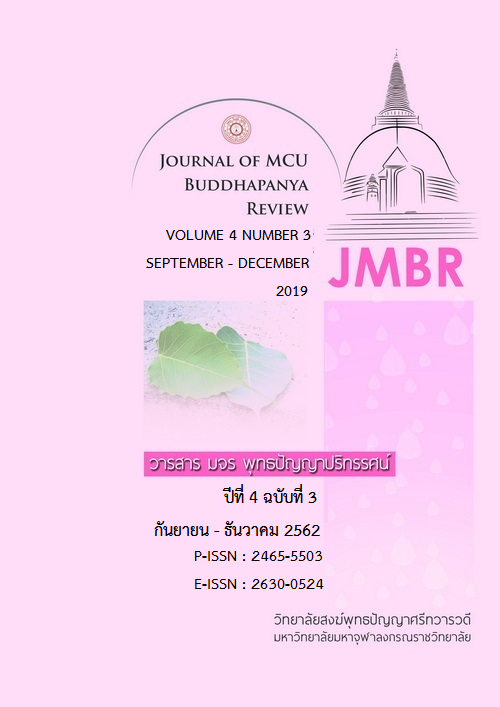Free Will and Personhood as Husband and Wife in Theravada Buddhist Philosophy
Keywords:
Free will, Personhood, Theravada Buddhist PhilosophyAbstract
This article is to study: 1) the concept of the free will, 2) to analyze free will and personhood as husband and wife in Theravada Buddhist Philosophy. This article is written following a review of literature from various sources such as textbooks, articles, and research reports. In the research, it was found that the human has freedom of choice. When the man must choose in personhood as husband and wife, jean Paul Sartre said that husband and wife are just symbol of two people who fall in love. There is meaning that the man is her husband and the woman is his wife. In fact, all the relations aren’t preserved reality of only being. The personhoodisn’t necessary to do or reject based on responsibility for own choices. In a viewpoint of free will, husband or wife has freedom to choose yourself. By the way, sartre didn’t focus to husband and wife because individuals can exercise freedom without boundaries. While Theravada Buddhist Philosophy views that husband or wife is free to choose something according to the sixth direction which is the social. If the free will is an individual concept, so the person must pay attention to social responsibility which determined by the attitude of the choice that we should do or not.
References
MahachulalongKornrajavidyalaya University. (1996). Thai Tripitakas. Bangkok: MCU Press.
MahachulalongKornrajavidyalaya University. (2013). Thai Atthakatha. Bangkok: MCU Press.
Phramaha Pongsak Sirikutto, Boon Nilaket. (2015). A Comparative Study of the Concepts of Cetana in Theravada Buddhist Philosophy and Free Will of Jean–Paul Sartre. Journal of Buddhist Studies, 6(2), 65-74.
Panichsilk, B. (2019). Feminism of Simone de Beauvoir. https://themomentum.co/something-between-simone-de-beauvoir.
Pinit, R. (2006). Philosophy in Jean-Paul Sartre’s Life. 6th reprint. Bangkok: Samanchon..
The Royal Society. (2017). Dictionary of Philosophy in English-Thai. (5th ed.). Bangkok: The Office of the Royal Society.
Visatavat, V. (2010). Philosophy’s Vision: Buddhist Philosophy. Bangkok: Julalongkorn University Press.
Jean-Paul Sartre. (2003). Being and Nothingness: An Essay on Phenomenological Ontology. London: Routledge Classics.
John K. Roth. (1988). The questions of philosophy. California: Wadsworth.
Lawrence E. Cahoone. (1998). From-modernism-to-postmodernism an anthology. Oxford: Blackwell Publisher.



